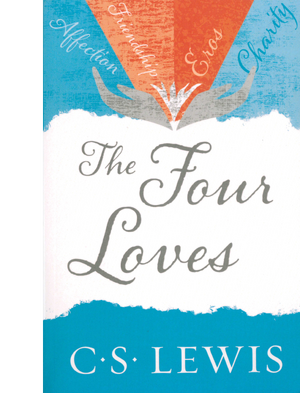C. S. Lewis on Situation Ethics
A Level: OCR
A detailed investigation into C. S. Lewis's key ideas on situation ethics, including what they are, how they work, and why they're important. This lesson provides a brief biography of C. S. Lewis and covers the chapter on charity in his The Four Loves. This includes discussion of the nature of the divine love (i.e. charity) and its role in regulating the natural loves (i.e. affection, friendship, and eros), which is explored with reference to C. S. Lewis's famous gardener analogy.
 C. S. Lewis's The Four Loves isn't really about situation ethics; instead, it's a deeply reflective investigation into the nature of love and its four types: affection, friendship, and eros (the natural loves), and charity (the divine love). The Signature Classic edition of this contemplative work is available here and is a textbook example of C. S. Lewis's clear and communicative style; it made him a publishing sensation, especially in Christian circles. It's a very helpful read for anyone interested in how the movement towards a love-centric ethic in Christianity occurred during the twentieth century.
C. S. Lewis's The Four Loves isn't really about situation ethics; instead, it's a deeply reflective investigation into the nature of love and its four types: affection, friendship, and eros (the natural loves), and charity (the divine love). The Signature Classic edition of this contemplative work is available here and is a textbook example of C. S. Lewis's clear and communicative style; it made him a publishing sensation, especially in Christian circles. It's a very helpful read for anyone interested in how the movement towards a love-centric ethic in Christianity occurred during the twentieth century.







0 comments
Leave a comment
Please log in or register to post a comment